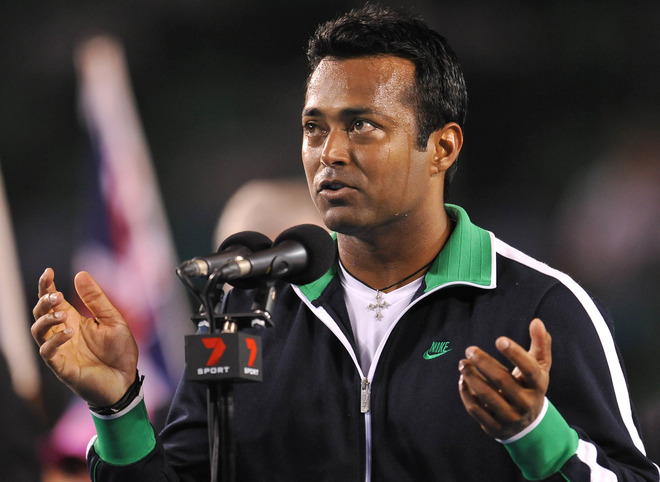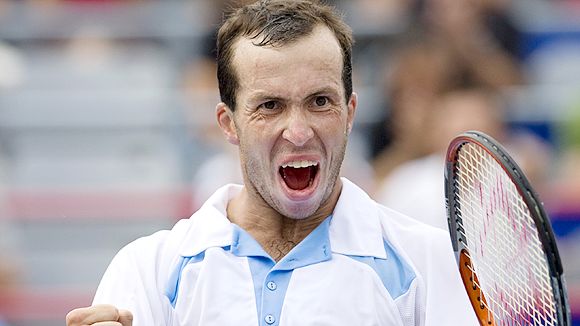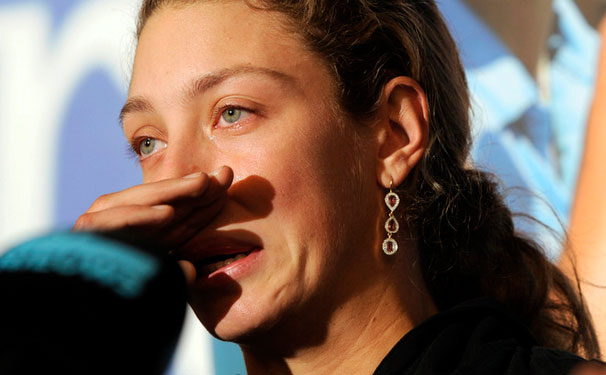VERO BEACH, Fla. — The USTA Pro Circuit is the American version of the “minor leagues” of tennis.
The circuit of 88 events in 2012 is comprised of “Futures” events — tournaments with $10,000 or $15,0000 in total prize money – and “Challenger” events – with tournaments featuring total prize money in the $50,000 to $100,000 range. These are the prize money structures for not just the “USTA” portion of these level tournaments, but also globally via the International Tennis Federation. The USTA Pro Circuit, the largest developmental tennis circuit in the world, features a grand total of nearly $3 million in prize money.

Vero Beach, Fla., a picturesque and quaint beach town where I like to spend as much time as I can, recently hosted a men’s $10,000 Futures event, by many accounts, one of the most successful in the world based on longevity and local fan and sponsor support. The event, title-sponsored this year by SorensenRealEstate.com, just finished its 19th edition with Australian John-Patrick Smith taking the title match 6-2, 6-0 over Pedro Zerbini of Brazil in front of a nice crowd of over 300 patrons (each paying either $10 or $20 to attend), who enthusiastically watched some excellent world-class tennis on the final day.
For his singles victory, Smith earned a first-prize paycheck of $1,300. He also won the doubles title and split the $630 first-prize paycheck with his American partner Benjamin Rogers. Zerbini earned $900 for his runner-up singles showing, which was well-earned since the world No. 773 and the No. 33 Brazilian won three matches in the qualifying tournament, then won four matches in the main draw before losing to Smith, ranked No. 336 in the world and No. 11 in Australia. That’s eight matches in nine days for Zerbini, earning him exactly $100 a day during his “successful” Vero Beach stay.
There was much local buzz in Vero Beach at the exploits of Kriegler Brink, the young South African teaching pro at The Moorings Club who was a former standout at Texas Christian University. Brink made an incredible run to the singles semifinals of the tournament last year, despite not playing a competitive singles tournament in a year-and-a-half. This year, having not played in another competitive tournament since last year’s USTA Vero Beach Futures, he reached the second round of singles – losing to Zerbini – but made a great run to the doubles semifinals with another Vero Beach local Robert Kowalczyk, a former standout at the University of California and a local entrepreneur.
Brink earned $200 for his second-round singles showing – his second-round match with Zerbini had a bounty of $90 bucks on the line as the winner would be guaranteed losing quarterfinalist money of $290. You would think that it was $90,000 or event $900,000 on the line the way that Kriegler and Zerbini were fighting tooth and nail for every point. Lost points were usually followed by racquet tosses or Brazilian or Afrikaan swear words being shouted as loud as a human voice could shriek. There were stare downs and even a good ole fashion “beaning” as Kriegler tattoed a Wilson tennis ball off Zerbini’s shoulder during a tense net exchange early in the second set. All of this with $90 bucks on the line? Talk about competitive!
By reaching the doubles semifinals, Brink and Kowalczyk split $260 dollars. That’s $130 each. So for two singles matches and three doubles matches, Brink grossed $330 for approximately seven hours of competitive match-play. That’s $47 an hour.
Brink played his second-round singles match during the afternoon session of the tournament on Wednesday, May 3 and returned for the evening session to play his doubles semifinal. In between, he taught two lessons at The Moorings club where his hourly rate is $65 per hour.
A young American prospect named Tennys Sandgren reached the semifinals in Vero Beach, losing to Smith 6-2, 7-5. Sandgren, whose first name is pronounced “Tennis,” was a standout player from the University of Tennessee who turned professional last year after winning consecutive USTA Futures events in Illinois. For his respectable semifinal finish in Vero Beach, the world No. 404 earned $480. Another young American talent Bjorn Fratangelo, who last year became the first American since John McEnroe in 1977 to win the French Open junior boys’ singles title, lost in the first round in Vero Beach to Canadian Phil Bester. Ranked No. 753 in the world, Fratangelo earned a paycheck of $117.50 in Vero Beach.
Players at these tournaments can stay at local hotels – usually offered at about $125 a night in Vero Beach – but can also be housed for free by local families, willing to help out a talented young tennis player. Lunches are provided by the tournaments, but everything else is an expense they have to incur on their own. I’d like to have a look inside some of these players tennis bags to see if they have two pennies to rub together after a week of living, travel and training expenses against prize money.
It is interesting to note that for tournaments at this level, there are three to five umpires/officials assigned to work the event. According to Mike Rahaley, the Vero Beach Futures tournament director, a fee of $4,500 has to be paid by him for these officials for the week. Plus he has to be responsible for their room and board for the week, an obligation he does not have to the “talent” – the players actually competing in the tournament. This amount for room and board is an additional $3,000 or so. According to some rough math based on these figures, these umpires/officials would receive about $1,000 for the week on the average, and their hotel and food is paid for. This makes the week of work for the chair umpires and officials more financially “lucrative” – although we hate to use that term – than every player competing in the tournament, save for the singles champion.
The All England Lawn Tennis Club announced recently its prize money for the 2012 edition of Wimbledon would see a increase of 10 percent from 2011, with a majority of the money being directed towards the earlier-round losers of the tournament. First-round losers at Wimbledon in 2012 will have their prize money increased by 26 percent – to approximately $23,400. Second-round losers will pocket approximately $37,000. Fourth-round losers would have their pay days increased by 13 percent – to approximately $121,000.
Said All England Club chairman Philip Brook during the 2012 prize money announcement, “Wimbledon continues to be successful and we are delighted to share that increase with the players. At the same time, we appreciate the need to help players meet the rising costs associated with professional tennis.”
Based on some number crunching from the USTA Futures of Vero Beach, it seems that a concern for the financial well-being of tennis players may need a trickle-down effect.





